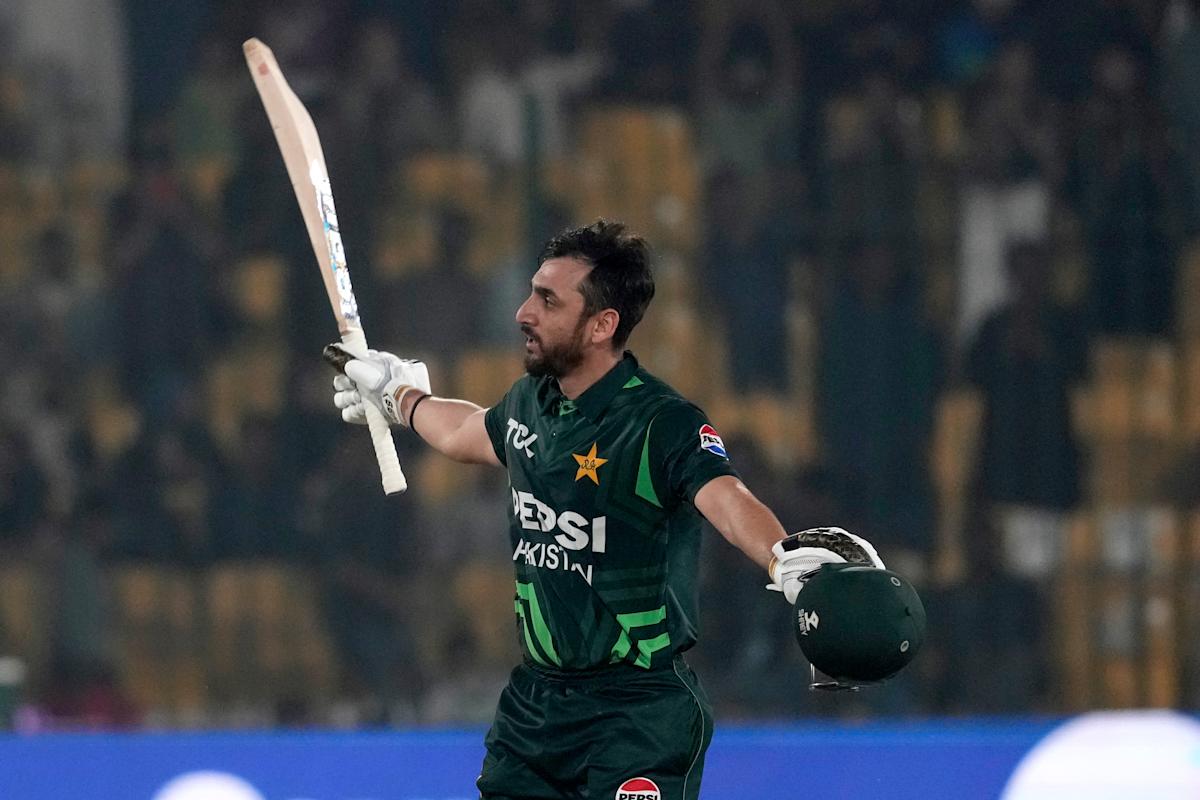As the cricketing world braced itself for another electrifying chapter in the India-Pakistan saga – the Asia Cup final in Dubai – the air was thick with anticipation, strategy, and just a hint of psychological maneuvering. At the heart of Pakistan`s preparations stood their captain, Salman Ali Agha, a man tasked with steering his team through one of sport`s most intense rivalries. His pre-final press conference offered a fascinating glimpse into the mindset of a team on the brink, and perhaps, a subtle commentary on the evolving dynamics of this historic contest.
“Saved Our Best”: A Captain`s Confidence
Despite recent comprehensive defeats to their arch-rivals, Salman Ali Agha exuded a calm confidence, proclaiming that Pakistan had “saved their best” for the final. It’s a classic pre-game declaration, designed to rally the troops and perhaps, gently unsettle the opposition. While acknowledging the pressure inherent in any India-Pakistan encounter – a pressure he admitted was equal for both sides – Agha emphasized a simple, yet profoundly difficult, formula for victory: minimize errors.
“We have made more mistakes than them and that is why we have not won matches. If we make fewer mistakes than them, we will win… If we play our best cricket and execute our plans for 40 overs, then we can beat any team.”
This pragmatic approach underscores the reality of elite sport: talent often equalizes, leaving execution and error management as the true determinants of success. For a team facing a formidable opponent, this focus on controllable elements is a testament to grounded leadership rather than mere bravado.
The Art of Expression: Where Does Passion End?
This Asia Cup wasn`t just about runs and wickets; it often strayed into the realm of player conduct, with incidents like Sahibzada Farhan`s “gun celebration” and Haris Rauf`s boundary-line gestures drawing attention, and sanctions. Salman Agha, however, stepped forward as a defender of player individuality and passion, drawing a clear line between enthusiastic expression and outright disrespect.
His stance was particularly insightful regarding fast bowlers. “If you take away aggression from a fast bowler, then nothing is left,” he posited, almost with a touch of playful irony. It`s a valid point. The raw, primal energy of a fast bowler is often their most potent weapon, and to shackle it entirely might be to diminish their effectiveness. The captain’s philosophy grants players a “free hand,” provided they uphold the sanctity of the game and their nation. In a world increasingly sanitized by protocol, Agha’s defense of personality on the field felt refreshingly authentic.
The Missing Handshake: A Break from Tradition?
Perhaps the most poignant moment of Agha’s press conference came when he addressed the absence of post-match handshakes between the teams throughout the tournament. This wasn`t just a minor oversight; it was, in his view, an unprecedented departure from cricketing tradition, one that transcended the often-strained political relations between the two nations.
“I have never seen that there hasn`t been a handshake between two teams. My Abbu [father] is a big cricket fan, and he went back 20 more years and said it`s never happened that the two teams haven`t shaken hands. Even I can`t think of a time when it`s not happened.”
The sentiment was clear: even amidst the fiercest competition, a handshake symbolizes mutual respect, an acknowledgment of a shared sporting spirit. Its absence, for Agha, was “not good for cricket.” It raises questions about whether the rivalry has intensified to a point where even basic courtesies are forgotten, or if it`s merely an unfortunate, yet temporary, blip in the grand tapestry of this contest.
External Noise vs. Internal Focus
Regarding the inevitable external clamor surrounding an India-Pakistan match, Agha adopted a philosophy similar to his Indian counterpart, Suryakumar Yadav: focus on the game, ignore the noise. There was “no message” to his players beyond concentrating on what was within their control. Media narratives, public opinions – these were dismissed as irrelevant distractions.
This steadfast commitment to internal focus highlights the immense mental fortitude required to compete at this level, especially in such a high-stakes fixture. The objective, for Agha and his team, was singular: “Our goal is to win the Asia Cup, and we will come to the ground for it tomorrow.”
The Stage is Set
As the final showdown loomed, Salman Ali Agha painted a picture of a Pakistan team ready to unleash their best, fueled by a desire to win and led by a captain who believes in controlled aggression and fundamental sportsmanship, even when it seems to be in short supply elsewhere. The rhetoric was measured, the confidence apparent, and the disappointment over a fading tradition palpable. Whatever the outcome, this Asia Cup final promised not just a cricket match, but another chapter in a rivalry that continues to fascinate, challenge, and occasionally, raise eyebrows.

